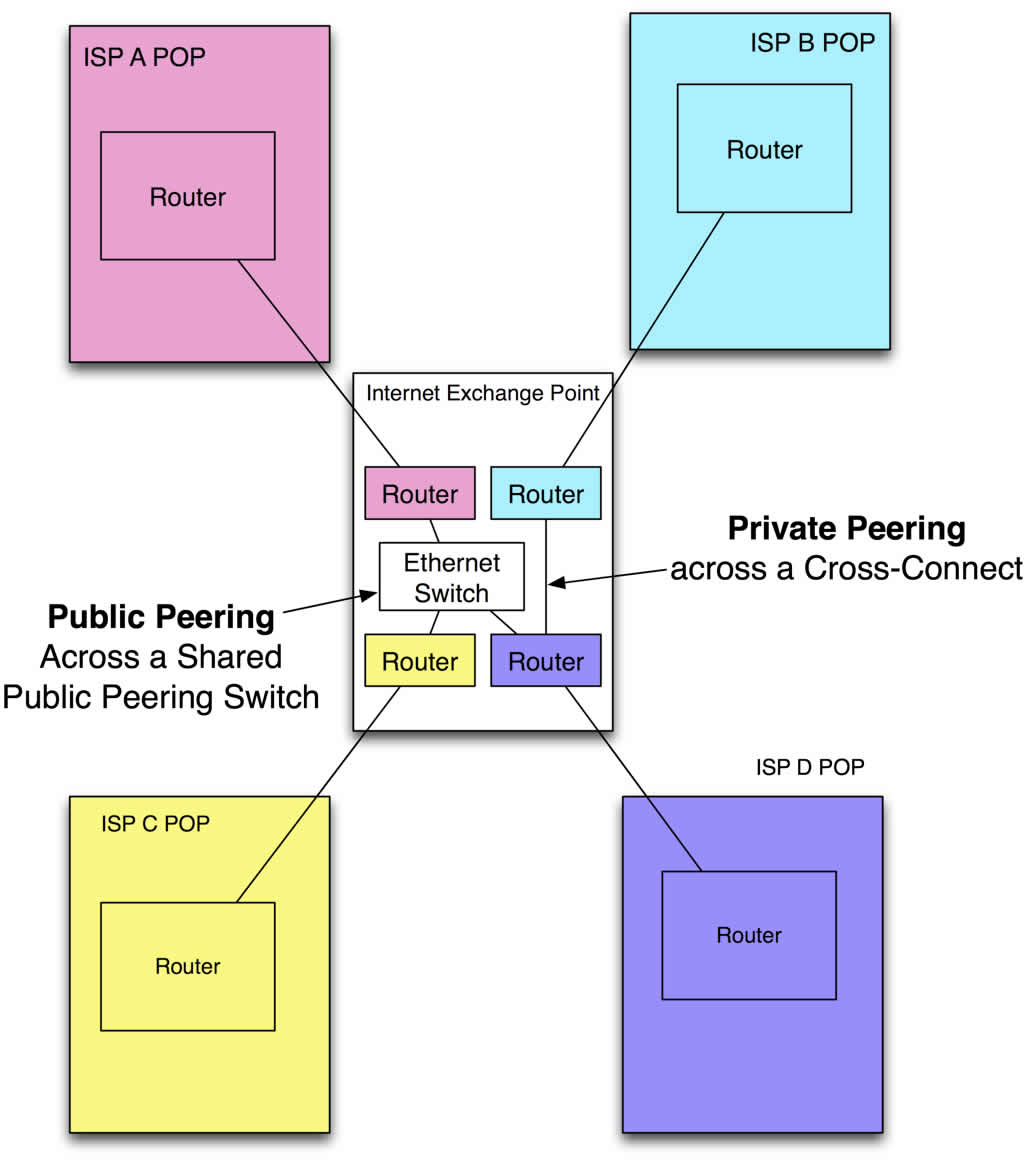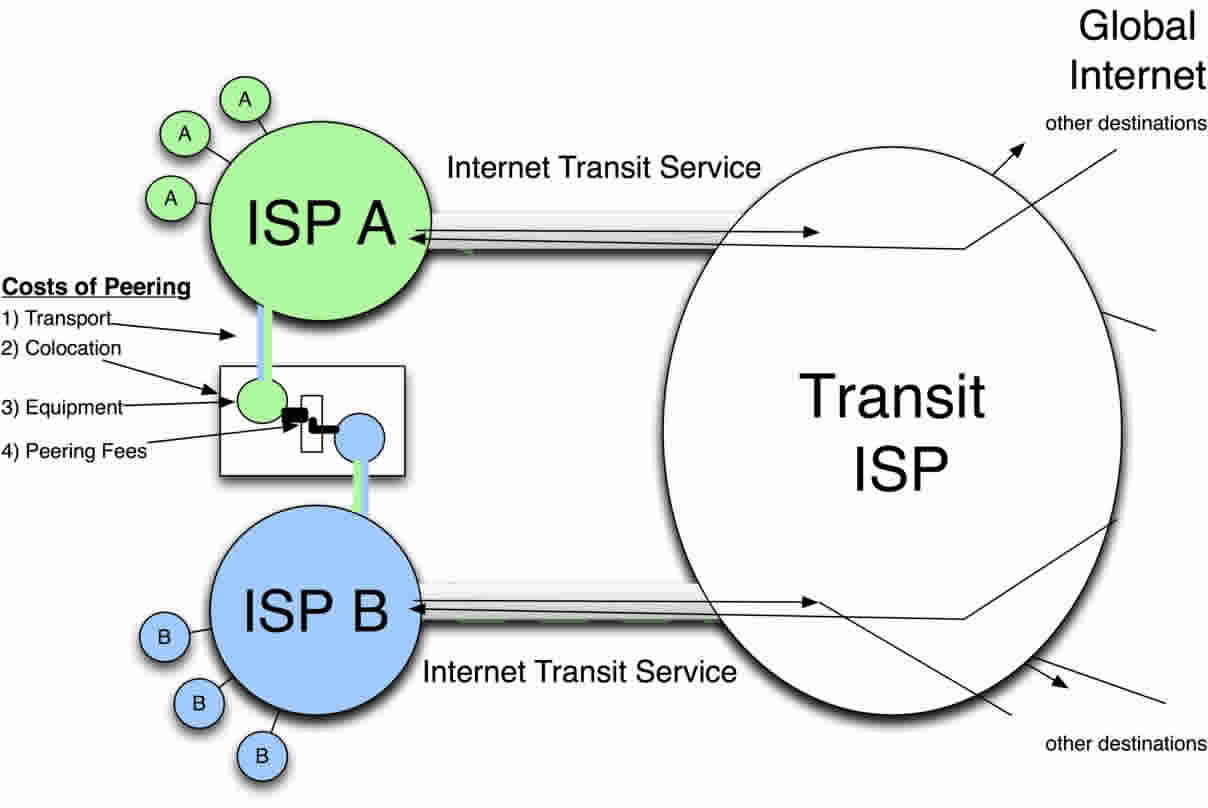The alternative to the Direct-Circuit Peering model is to peer at an Internet Exchange Point.
Definition: An Internet Exchange Point (IXP) is a place where multiple ISPs interconnect their networks together (see figure below). Potentially many peering sessions can be established across a single well-populated IXP peering fabric or across private peering sessions over (typically) fiber cross connects.

Notes from the field.
Tier 1 ISPs Migrate From Metro Interconnects to Carrier-Neutral Exchange Points
In the early days of the U.S. Internet Peering Ecosystem, the largest ISPs in the U.S. interconnected their networks together using direct circuits. They ordered circuits between their POPs in a region from a local carrier. These circuits were sometimes delayed up to 18 months past the due date. Traffic management for the two parties became a very tough challenge, as they had to route their peering traffic along a more circuitous, uncongested path until the new regional circuits were in place. This situation led to a large-scale build into carrier-neutral data centers and explains why the IXP model is now the method predominantly used for interconnection at the core of the Internet.
The cost of peering at an IXP usually involves the following cost components (see figure below):
• Transport fees for getting the traffic to the exchange point
• Colocation fees
• Equipment fees
• Peering port fees on the exchange point shared fabric

Definition: Transport Fees refer to the monthly recurring expenses associated with a physical/data link layer media interconnection into a peering location.
Unlike transit service, transport is not metered; it is sold as a fixed-capacity circuit that costs the same regardless of the amount of traffic exchanged over it.
Notes from the field.
Ray the Hoster
A counter example came up during the hard times of the last economy collapse. During the downturn, an entrepreneur purchased a data center for pennies on the dollar. He "un-mothballed" the generators; Uninterruptible Power Supply (UPS); Heating, Venting, and Air Conditioning (HVAC) systems; security systems; etc. and was able to negotiate a metered transport pipe, something very rarely made available. He explained to Qwest that there was no traffic yet, but the gear was already in the building, and if a deal could be arranged he would start paying something for which there was $0 revenue today. The deal was struck. This situation is the only time I have heard of the circuit provider allowing the customer to meter itself.
Definition: Colocation Fees are the (typically monthly) expenses associated with operating network equipment in a data center suitable for operating telecommunications equipment.
Not only do colocation facilities provide the operations environment necessary for the equipment, but the better ones also make it easy and cost-effective for their population to interconnect with each other. They understand their customers' businesses and seek to establish and grow a community of participants. A handful of these colocation centers provides much more than space, power, and cross-connects. They facilitate peering.
Definition: Equipment Fees are the amortized costs of the networking equipment used for Internet Peering. (In modeling the Internet exchange later on, we will calculate the total cost of peering at an exchange, including equipment, and make assumptions about pricing, depreciating the deployed router gear.)
Definition: Peering Port Fees are the monthly recurring costs associated with peering across a shared peering fabric.
Together, these fees are the monthly cost of peering. These fees are typically the same monthly recurring cost regardless of the amount of traffic that is exchanged over the infrastructure.
For the cost of the interconnection, both parties can then send and receive as much traffic as can fit across the transport circuit and peering fabric.